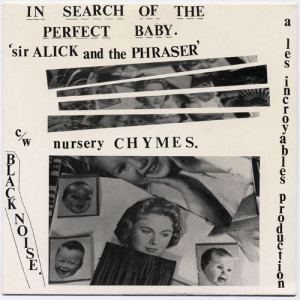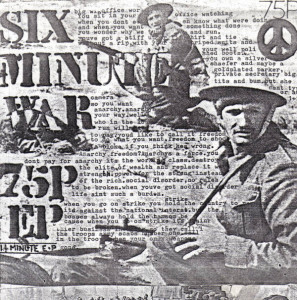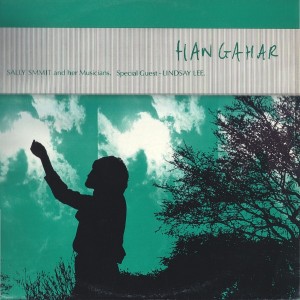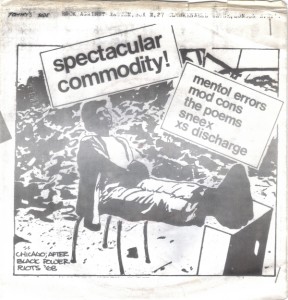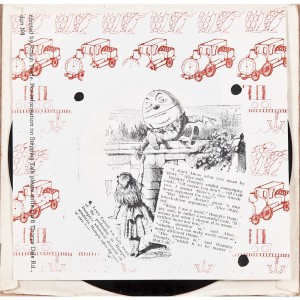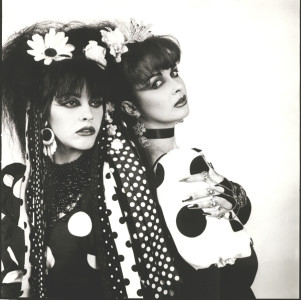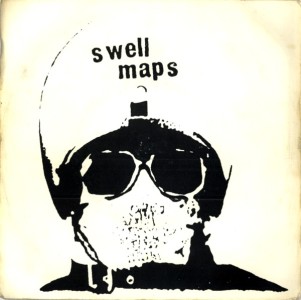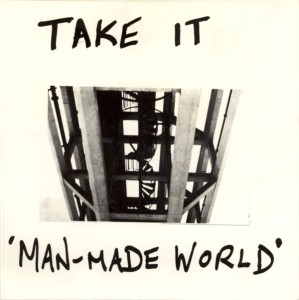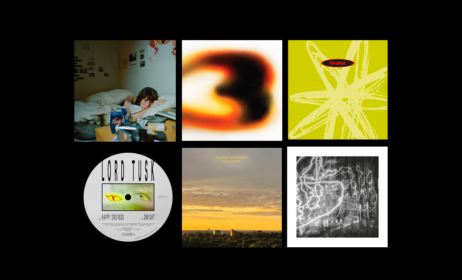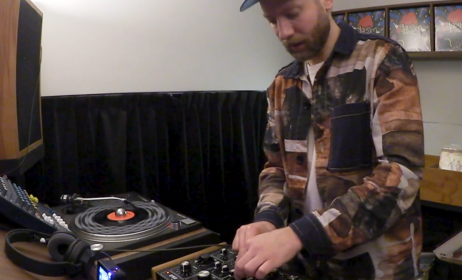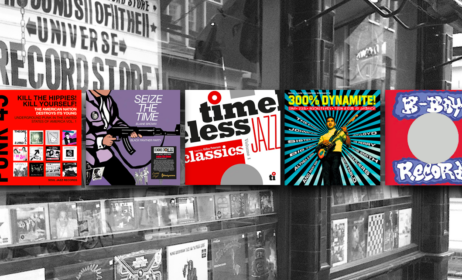Published on
October 2, 2014
Category
Features
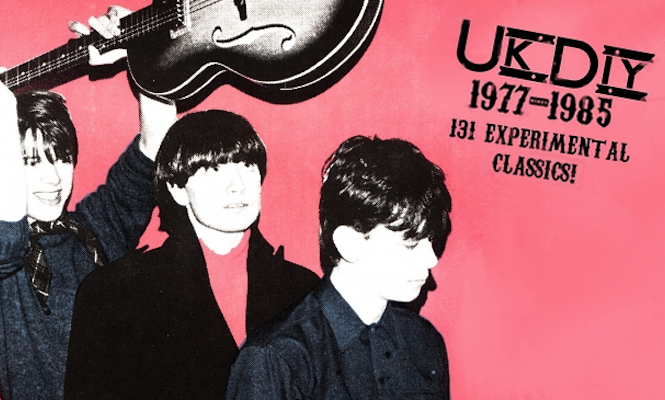
101. DESMOND SIMMONS
‘Alone On Penguin Island’
(Dome, 1981)
Released by Bruce Gilbert and Graham Lewis’ Dome label, and soon to join Colin Newman’s group, Desmond Simmons was Wire-by-proxy, almost. There are some great warped songs on this album, almost in a prog Eno / Anthony More Flying Doesn’t Help style, but I keep coming back to the weird instrumental interlude of ‘Alone On Penguin Island’, which sums up many beautiful things about the beguiling oddness of post-Wire enterprise – a thumping electronic heartbeat grounding a three-note banjo refrain, whining Augustus Pablo melodica, and subliminal breaths and laughter building the tension toward the end. In its own, confused way, it feels somehow consummate.
102. SIR ALICK & THE PHRASER
‘In Search Of The Perfect Baby’
(Black Noise, 1980)
Bruno Wizard gives you more with ‘In Search Of The Perfect Baby’, one of the handful of indisputable heartbreaker classics from the extended Homosexuals cabal. The unbearable melancholy of Bruno’s guitar and voice quickly slips into more cognitively warped terrain, as though the song is straining at its contours, trying to find ways to violate logic. You wish you could write songs like that, but you can’t. Only Bruno Wizard can do it (and maybe, at a pinch, Robyn Hitchcock circa The Soft Boys). Music rarely collapses so elegantly as it does on ‘In Search Of The Perfect Baby’. Don’t sniff at the wonderful B-side, ‘Nursery Chymes’, either. This one just inches out that Ici La Bas 12”, though ‘Total Drop’, from that record, ain’t no slouch.
103. SIX MINUTE WAR
‘Progress’
(Six Minute War, 1980)
Sloppy, blunt and beautiful, here Six Minute War decide that the nuclear cloud isn’t a particularly cool one to be living under, and proceed accordingly, pulling Communism, capitalism’s accelerationist drive, and fallout shelters together under the cover of a guitar that sounds so metallic and sharp you’d expect it to lacerate your skin without your knowing. Another group who shot for short songs – their first, self-titled EP features 11 tracks (one less than Seems Twice, who are the yardstick for this kind of business, but many more than most) – they’ve got that oddly oikish chant down pat, and the drums put the rude in rudimentary. But there’s something quite exhilarating about Six Minute War’s music; they’re playing at the very limits of their belief and enthusiasm.
104. SALLY SMMIT & HER MUSICIANS
‘Hangahar’
(Groovy, 1980)
Ah, Hangahar, the best of the small yet perfectly formed Groovy Records catalogue. Run by Pete Shelley of The Buzzcocks, Groovy was the home for his weird-out, Krautrock-obsessed side – check out the hissing electronics of Shelley’s solo Sky Yen, too, or the potting-shed clatter of The Free Agents’ £3.33 for more gems. But Hangahar is the one, not least because that’s a young, wild Sally Timms, later to achieve no small amount of infamy as a member of The Mekons, and solo artist par excellence, channelling her inner Yoko / Dagmar / Patty Waters, under which members of the Groovy collective make loose with conventional structure and tonality. A beautiful, long-form wrap. A few years ago, Drag City broke from their recent form (turning young men into old hippies) to release a Groovy box set, The Total Groovy. You need it.
105. SNEEX
‘Radiomania’
(Groucho Marxist Record Co-Operative, 1979)
More sound of alternative Paisley – and yes, I am a little obsessed with the Paisley Punk crew. But Sneex’s ‘Radiomania’ is a real gem, with the same driven energy as the Swell Maps, if not their raunchy, post-T Rex glimmer. They’ve got some of their references spot-on (“John Peel, he’s the real deal”), some are retrospectively unfortunate (“Jimmy Saville, he will fix it” – no, he won’t), but the primitive garage thud of ‘Radiomania’ pushes all the right buttons. Thanks to Mike Clarke’s piece on the Paisley Punk scene, we know Graham Thompson of Sneex appeared in Gregory’s Girl with Altered Image’s Claire Grogan.
106. SPHERICAL OBJECTS
‘Seventies Romance’
(Object Music, 1979)
From Manchester, Spherical Objects were an incredibly productive outfit, releasing two singles and four albums between 1978 and 1979. ‘Seventies Romance’ is as good an example of what they were up to as you could find – a slightly clumping, leaden-footed song, with Steve Solamar’s unique vocal delivery (theatrical, somehow, even within the humble confines of the relatively DIY production), it shares with those early Fall records a dinky keyboard sound (close your eyes and that could be Una Baines plugging away at her Casio) and a seeming disconnect with much of the fashion that surrounds it. Solamar also ran Object Music, which released records by Tirez Tirez and The Passage, and documented the Manchester Musicians Collective on 1979’s A Manchester Collection compilation. Look out, too, for the Noyes Brothers double album, Sheep From Goats, a 1980 collaboration between Solamar and Steve Miro.
107. STEPPING TALK
‘Alice In Sunderland’
(Eustone, 1979)
Blurry, mumbled, hissy, bipolar non-pop, released on Eustone, the label that also gifted us with Methodishca Tune. Stepping Talk were another arm of the extended Scritti Politti collection, and probably the best of the lot. You’ve got to hand it to Stepping Talk, too, for ‘John’s Turtles’, their tribute to John Fahey, which they recorded while Jim O’Rourke was still in short pants. The great Jay Hinman sums this one up perfectly, at his Detailed Twang blog, when he describes it thusly: “Low-key and aimless to a fault, it illustrates perfectly that special rainy, damp, cold leftist/labour DIY sound that encapsulates barely-pre-Thatcher Britain in 1979.” This one’s somehow slipped between many of the cracks: make sure you help bring it back into the realm of the living. What a great single.
108. STRAWBERRY SWITCHBLADE
‘Seaside’ / ‘Spanish Song’ / ‘Trees & Flowers’
(unreleased, 1982)
I’m cheating a little here, because by the time they were releasing records, Strawberry Switchblade had gone relatively pro: even if you grab hold of their debut single on Ninety-Two Happy Customers, they’re being produced by Balfe and Drummond, with Kate St John on oboe, and Aztec Camera’s Roddy Frame on extra guitar. So instead, turn your attention to this wonderful demo from 1982, where things are still formative, and Strawberry Switchblade are actually a band proper, rather than the duo vision of Rose McDowall and Jill Bryson. Word has it that The Pastels’ Geographic Music imprint is working on a collection of these early Strawberry Switchblade recordings, which has me pleased as punch.
109. SWELL MAPS
‘Read About Seymour’
(Rather, 1977)
The key to the Swell Maps: they wrote great pop songs, and then buried them under all kinds of post-Krautrock avant tactics. But on ‘Read About Seymour’ they seemed to summarise much of their subsequent career in 90 seconds, from the squalling, churning guitar tone, to the oddball lyrics and street chant delivery, through to the twenty-second freak-out that ends the song almost before it’s even had a chance to begin. Not too many groups managed to pack this much excitement into one-and-a-half minutes.
110. TAKE IT
‘Man-Made World’
(Fresh Hold, 1979)
One of the few records on this list that fully deserves invocation of that most dreaded of critical tropes: angular. But ‘Man-Made World’ makes the grade through the weird illogic that courses through the song – a grounding four-note keyboard riff churning through the guts of the song, while guitar and keys stab at the vocalist, who’s off somewhere else, seemingly perfecting his hollow-cheek croon. And why does that drummer turn up half-way through? Everything was going so well.

